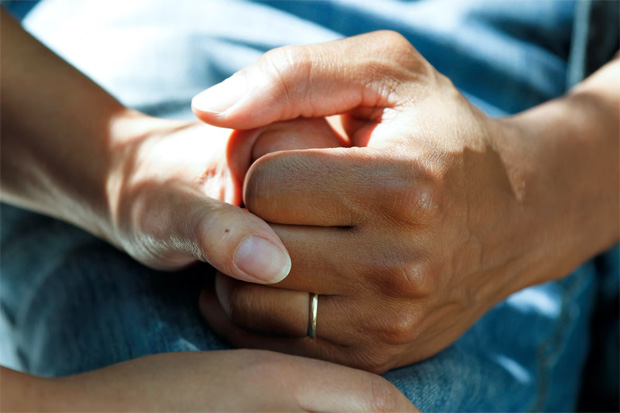A Loved One Seriously Injured Due to a Car Accident – How to Help

A Loved One Seriously Injured Due to a Car Accident – How to Help
Severe injuries and deaths on the road are preventable tragedies, and yet, people die daily on the roads in the UK, and many others suffer serious injuries.
There were 131,220 casualties of all severities in 2020 due to car accidents in the UK. Annually, many people are injured in motor vehicle crashes and suffer from traumatic injuries that leave them physically debilitated. Most times, car accidents affect the victims’ ability to provide for themselves, hold a job, or enjoy their usual quality of life. But these are the victims who can count themselves lucky because they survived the accidents. The number of road deaths has plateaued at 1800 deaths annually since 2012. Five people die daily due to a car crash, on average, in the UK. It’s the moment to take this issue more seriously.
If one of your loved ones has experienced a serious injury because of a car accident and is currently recuperating, they may be going through a tough period and need all your help. You can make a real difference in their recovery if you provide them with the required support. This article can teach you how to help them during this harrowing ordeal.

Understand how their injuries can change their lifestyle
Life-changing injuries are serious injuries that have a permanent or long-term impact on the victim’s quality of life. If your loved one suffered a life-changing injury, they might deal with a severe disability, lifelong medical problems, reduced life expectancy, and a long and expensive recovery. It’s overwhelming to bear the adverse effects of a life-changing injury, and they need support to cope with the limited mobility, physical pain, or other losses they may suffer because of the car crash. But if they benefit from compassionate support from their family and friends, they can recover and gain back their life.
The first thing you should do when trying to help a loved one recover from a car crash is to understand how their injuries affect their lifestyle. Discuss with their physician and ask for recommendations on how to assist them.

How can you support your loved one recover from a serious car accident injury?
Most victims need great help after they experience a severe injury. If your loved one suffered a traumatic injury, you know you need to help them, but you don’t know how you can do it. Because you lack medical knowledge, you don’t know what it’s important during their recovery.
Don’t panic because there are many ways you can help someone who tries to regain their physical and emotional well-being. Here are some tips to make the journey easier.
- Help them with research
Recovering from a serious car crash involves plenty of work. Often the process starts with running extensive research. You can make things easier for them if you assist them during the research. For example, you can help them find a solicitor to file an insurance claim. You can compare the services solicitors offer in the UK with the help of a platform like ReviewOfSolicitors that provides information about personal injury solicitors and gives access to comments from real clients. This way, they can know what to expect when they hire one and what paperwork they need to complete for the claim.
Start by searching online for Best Car Accident Lawyer Near Me to see what’s available locally to you. Your loved one needs to make informed decisions about the services they receive, but it can be challenging if they don’t fully understand what they imply. The insurance and medical systems are complicated to navigate, and it would be easier for them to do it with the help of a professional. Assisting them by researching reliable resources is a great way to lend a hand.
- Offer emotional support
Dealing with a severe injury or health issue is frightening for anyone, especially if it can alter their quality of life. The emotional and psychological toll it can pose is quite daunting. It’s crucial to offer them emotional support after they experience an auto accident. The best way to do it is to be a good listener. They need someone compassionate to listen to what they have to say and offer them a safe space to express and work through their feelings and emotions. Avoid making them feel rushed to make a decision regarding their health or push them to do anything they may not feel comfortable with.
Try to create a safe and calm environment where they feel loved and encouraged to recover. Everyone heals at their own pace, so be patient.
- Help them manage their doctor appointments
Navigating the healthcare system is challenging even for someone who doesn’t struggle to recover from a car crash. Dealing with a calendar full of doctor appointments after a traumatic injury is challenging and stressful. You can be their second pair of ears and listen to the physician’s recommendations on having a follow-up visit.
People who experience car accidents are under a doctor’s care for a long period, and they can easily miss an appointment. So, be ready to assist them in scheduling, managing, coordinating, and travelling to their doctor’s visits, including chiropractic sessions at Kingwood chiropractic clinic for ongoing musculoskeletal recovery.
It would also be helpful to offer your assistance with simple tasks like cleaning the house, attending one of their family members to a doctor appointment, or providing their care assistant with instructions on their treatment.
- Help them build a care plan
The recovery process in these instances can be stressful, costly, and lengthy. Help your loved one create a comprehensive treatment plan that fits their needs to offer them the best chance to recover. Please include the name of the physicians and care facilities they need to receive treatment, the dosage of each medication, the schedule of doctors, and the time of their future treatment appointments. The overall recovery process can be less overwhelming if they have a plan they can follow and get from a step to another.
Before you do anything to help your loved one handle their recovery, discuss with them to find out what they want. Respect their wishes and don’t force them into things they don’t feel comfortable with.
Collaboration.




